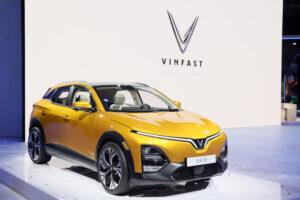Partnership addresses clean energy ecosystem
Analog Devices, Inc. (ADI), a global semiconductor leader, and VinFast, a leading Vietnamese electric vehicle (EV) manufacturer will partner to advance Battery Management System (BMS) solutions for Electric Vehicles (EVs) and Energy Storage System (ESS). The joint efforts aim to address key challenges faced by the clean energy ecosystem by driving solutions that help improve battery efficiency and lifetime performance, EV range, and charging times.
ADI is at the forefront of enabling the next wave of EVs, boasting a leading position in the automotive BMS market by working with 16 of the top 20 global Original Equipment Manufacturers (OEM)s.
ADI also previously introduced the industry’s first wireless Battery Management Systems (wBMS), which eliminates wiring harness and enables scaling of EV fleets via robotic manufacturing and allows flexible and lighter battery packs design. Beyond this, ADI is driving innovation across electric powertrains, immersive cabin experiences and advanced driver assistance systems (ADAS). ADI’s central position is in the clean energy ecosystem, encompassing renewable generation, energy storage, transmission and distribution, and electrified mobility.
This unique positioning gives the company a unique perspective into the challenges and opportunities involved in the transition to clean energy.
Vietnam’s emergence as a significant semiconductor production hubmarks a pivotal moment in the country’s technological evolution. The Vietnam Automobile Manufacturers Association forecasts that the country will reach 1 million EVs by 2028 and 3.5 million by 2040 demonstrating a substantial shift towards electric mobility in the region.
In its capacity as Vietnam’s leading EV manufacturer with global aspirations, VinFast stands to leverage its expertise and industry insights to enhance strategic initiatives within the Vietnamese automotive market. Meanwhile, ADI extends access to the latest BMS solutions, signalling a collaborative effort aiming at driving advancements within Southeast Asia’s EV ecosystem.
This push toward electric mobility not only aligns with global trends but also underscores the region’s commitment to reducing carbon emissions and mitigating the impacts of climate change.



